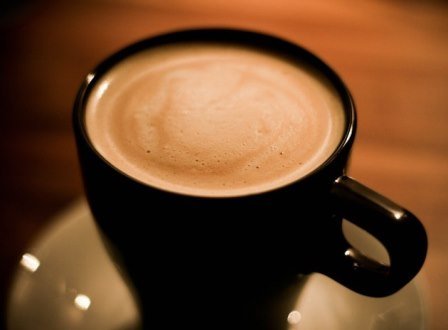The Scent of Coffee Appears to Boost Performance in Math
Smelling a coffee-like scent, which has no caffeine in it, creates an expectation for students that they will perform better on tests.
Some studies have shown that coffee can lower the risk of heart problems, diabetes and dementia and even reduce the risk of death. Now, a new study from the Stevens Institute of Technology reveals that nothing more than the aroma of coffee can help improve in the analytical section of the Graduate Management Aptitude Test (GMAT), a computerized adaptation test that is required in many business schools.
The work, led by Professor Adriana Madzharov of the Stevens School of Business, not only highlights the hidden benefits of aroma and the cognitive impetus that it causes in analytical tasks, but also the expectations of students to better perform these tasks. Madzharov and his team have collaborated with colleagues at Temple University and Baruch College and published their findings in the Journal of Enviromental Psychology.

Fuente
"It's not just that the smell of coffee helps people perform better analytical tasks, which is already quite interesting," says Madzharov. "It also makes them think that they will do better and this expectation is, in part, responsible for their improvement." To perceive the smell of coffee, although it does not have caffeine, has an effect similar to that of drinking coffee, suggesting a placebo effect of the aroma of this drink.
Improvement in cognitive abilities
In his work, Madzharov and his team conducted a GMAT algebra test of ten questions to about 100 students without graduating from business careers, dividing them into two groups. The first group performed the tests with the presence of coffee aroma in the environment, while the second group did the same tests without any aroma. They found that the group with the smell of coffee scored significantly higher on tests.
Madzharov and his team intend to go further and discover if the improvement of the first group could be explained by a false expectation that the smell of coffee would increase their attention and, as a result, improve their performance. Smell is one of the most powerful senses of the human being.

The team designed a follow-up survey, conducted by more than 200 new participants, in which they questioned the relationship between various scents and the effects they could have on human performance. The participants believed that they would feel more alert and energetic with a coffee aroma than with a flower or no smell, and that exposure to the smell of coffee would increase their performance in the performance of mental tasks. The results suggest that expectations about performance can be explained by the belief that the essence of coffee makes people more attentive and more energetic.
Madzharov, whose studies focus on sensory marketing and aesthetics, aims to investigate whether the aroma of coffee causes a similar placebo effect in other types of skills, such as verbal reasoning. He hopes that this discovery has many practical applications, including in the business sector.